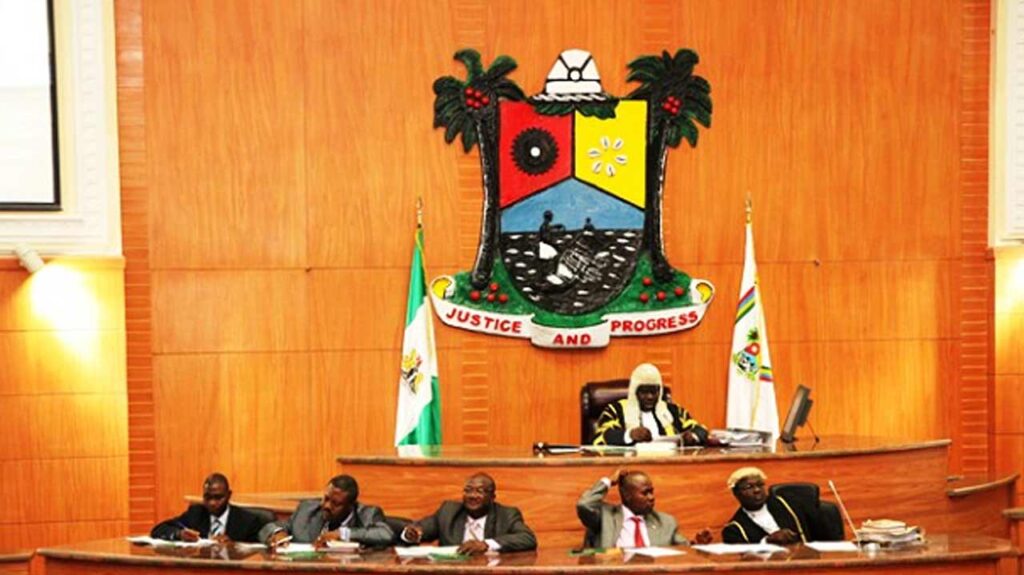By Sodiq Adelakun
The Lagos State House of Assembly on Monday took a major step forward in deliberating the 2025 appropriation bill, which totals N3.005 trillion.
The bill, presented to the lawmakers by Governor Babajide Sanwo-Olu last Thursday, has stirred considerable debate over its projected deficit financing and the allocation priorities.
During the session, Speaker Mudashiru Obasa presided over the proceedings, directing the joint committee on appropriation and finance to conduct an extensive review of the proposed budget and submit a detailed report within one month.
Hon. Sa’ad Olumoh, Chairman of the House Committee on Budget and Economic Planning, provided an overview of the budget, raising concerns about the N408 billion deficit financing outlined in the proposal.
“While loans are beneficial when applied appropriately, we must adopt a sustainable and pragmatic approach to budget financing, we should explore alternatives, such as Public-Private Partnership models, and ensure that the budget is realistic and free of wastage.” Olumoh cautioned.
Deputy Majority Leader, Hon. Adedamola Richard Kasumu, stressed the importance of thoroughly reviewing the budget to assess its feasibility and ensure that it meets the state’s developmental needs.
“A comprehensive review will help identify potential financial risks and make sure we are on the right track,” he said.
Several lawmakers raised issues regarding key areas in the budget. Hon. Gbolahan Yishawu (Eti-Osa 2) highlighted the absence of allocations for critical sectors like electricity infrastructure and climate change initiatives.
He recommended a five-year retrospective analysis of deficit funding to gain insights into the state’s fiscal trends. “We need to ensure that these key areas are adequately funded to promote sustainable development,” Yishawu argued.
Hon. Femi Sheed also weighed in, emphasising the need to link borrowing to essential infrastructure projects, particularly electricity.
He called for enhanced revenue efficiency and measures to tackle financial leakages that could undermine the state’s economic stability.
Adding to the concerns, Hon. Desmond Elliot pointed out the lack of provisions for food security in the proposed budget.
Also, he urged the inclusion of programs aimed at addressing the nutritional needs of Lagos residents. “Food security is crucial for the well-being of our people, and it must be prioritized,” Elliot remarked.
Recall that, Governor Sanwo-Olu’s budget proposal includes a capital expenditure-to-recurrent expenditure ratio of 59% to 41%. He also noted that deficit financing would be sourced through a combination of internal and external loans, as well as bonds.
The Lagos State House of Assembly has pledged to ensure thorough scrutiny of the 2025 budget to enhance accountability, curb wastage, and ensure that the state’s financial resources are used efficiently for sustainable development.

